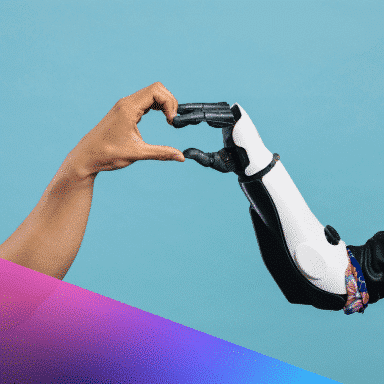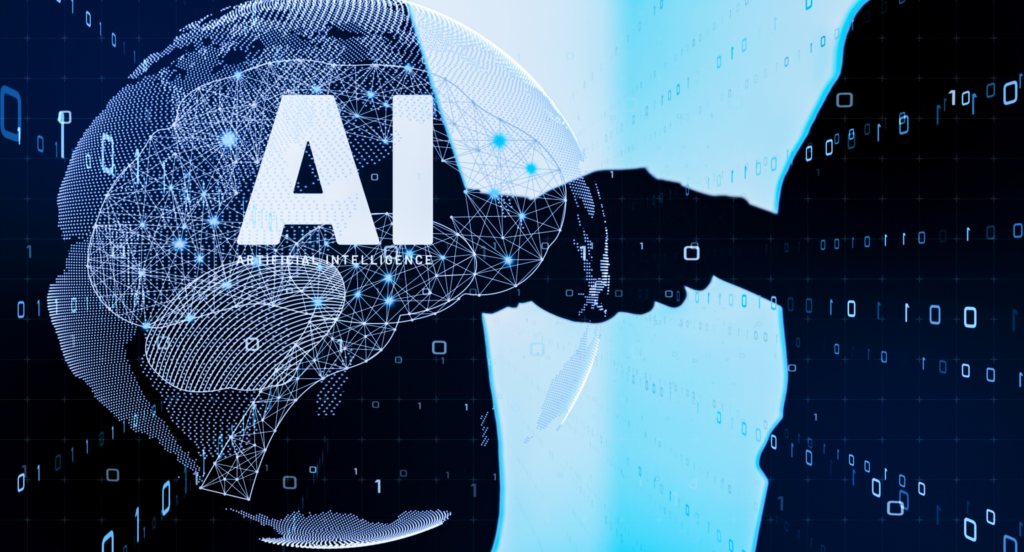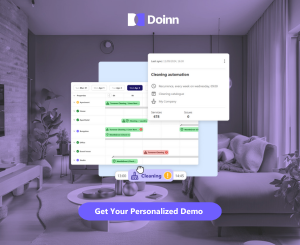Balancing Human Intelligence with AI for short term rentals

Human intelligence has always been at the heart of the hospitality industry, where genuine connection and empathy define guest experiences. As AI reshapes how businesses operate, the comparison between human intelligence and AI has never been more pertinent.
In both traditional hospitality and short-term vacation rentals, the need to blend human understanding with AI is essential for delivering memorable and impactful guest experiences.
AI has revolutionized hospitality and STR operations, from streamlining bookings and managing cleaning schedules to offering 24/7 virtual support.
For example, short-term rental platforms now use AI-powered tools to automate pricing strategies or synchronize bookings with cleaning services,
However, while AI brings efficiency, it lacks the emotional depth required to create the personal touches that guests remember. Imagine arriving at a charming coastal rental after a long trip.
While an AI might guide you through a keyless check-in process, a handwritten note from the host or a welcome basket adds a human touch that resonates with guests.
The vacation rental industry balancing AI automation with personalized interactions builds trust, which are critical in today’s competitive market.
The question is not whether human intelligence or artificial intelligence is superior, but how these two elements can enhance both operations and guest experience.
AI is exceptional at handling repetitive tasks and analyzing vast amounts of data, but it’s human intelligence—marked by creativity, cultural awareness, and the ability to adapt—that sets truly remarkable experiences apart.
In this blog, we’ll dive into the distinct strengths of human and artificial intelligence, their respective roles and short-term rentals, and how businesses can use both to elevate guest satisfaction and operational success.

The Benefits of human intelligence
Human intelligence is defined by its ability to empathize, innovate, and connect—qualities indispensable in hospitality. Hotel staff who can intuitively understand guest needs or anticipate issues without being explicitly told are examples of this adaptability.
A guest celebrating a special occasion may receive a personalized gift or message, an empathetic gesture that makes their stay unforgettable. These human touches can turn a one-time guest into a lifelong advocate.
Another aspect of human intelligence is adaptability during crises or high-pressure situations. For instance, during a sudden storm that cancels flights, hosts might juggle multiple guest requests or even help coordinating transport.
These spontaneous, creative problem-solving skills set human intelligence apart and ensure that guests feel valued and cared for, no matter the situation.
The hospitality industry is still however suffering from labor shortages since the pandemic which affects the level of service to give to each customer. To combat this, companies like Richtech Robotics’ ADAM, have gone with the robotic solution. ADAM a robot can detect when someone approaches, start a conversation, and respond to requests.
Imagine a robot server delivering your meal and having a friendly chat. This shows how AI can fit into hospitality, making things more efficient and personal when necessary.
AI: Precision and Scalability
AI, on the other hand,processes vast amounts of information quickly, making possible to:
- Enabling tasks like booking management
- Guest communication
- Trend forecasting , amd more!
For example, AI tools can analyze a guest’s previous stays or feedback to provide recommendations, such as suggesting a room with a preferred view or a special ammenitie.
A report stated that revenue management is one of the top areas benefitting from AI tools to better forecast future booking demands and optimize pricing strategies.
In the other hand chatbots, can handle hundreds of inquiries, providing instant responses to questions about amenities, check-in, or local attractions. This scalability allows hotels to maintain consistent service quality even during peak periods, ensuring no guest feels overlooked.
By combining these capabilities, AI and human intelligence create a complementary system where technology enhances efficiency and humans deliver the emotional connections that define hospitality.
Why Human Intelligence is Irreplaceable
Hospitality thrives on genuine care and empathy, and this applies to short term rentals. Whether it’s a boutique hotel concierge or a property host, human interaction can transform a guest’s experience.
Imagine a host leaving a handwritten note welcoming guests with recommendations for local restaurants or a favorite hidden gem in the neighborhood.
This small but thoughtful gestures fosters a deeper connection that no automated chatbot can replicate to leave a lasting impression.
For example, during a stay at avacation rental, a guest might receive a personal email from the host offering to arrange a boat trip based on their expressed interest in marine life.
These human touches make the stay memorable and establish a bond between the host and the guest, driving repeat bookings and positive reviews. AI might facilitate the communication, but it is the human host’s ability to empathize and customize the interaction that leaves a lasting impression.
Complex Problem-Solving
AI excels at routine, repetitive tasks but falls short when faced with unique challenges or small gestures. Consider a guest whose travel plans change unexpectedly, requiring an extension of their stay.
While AI systems may manage availability and suggest alternative dates, a human host can work in between bookings, cleaning schedules, and find creative solutions. Even a small gesture for a proposal or birthday can go a long way.
For example, a family staying in a mountain chalet during a snowstorm might face logistical issues. A responsive property manager could step in, arranging extra firewood, coordinating a snowplow service, or delivering groceries to ensure the family remains safe and comfortable.
These adaptive problem-solving skills reflect the depth and creativity that AI simply cannot replicate through machine learning, cementing trust and loyalty.
Cultural Sensitivity and Personal Interaction
Navigating cultural nuances is vital for any hospitality professional. While AI might identify language preferences or dietary restrictions, human intelligence brings a deeper understanding of traditions and practices that enrich the guest experience.
These gestures often result in glowing reviews, as guests feel seen and appreciated beyond generic service. this sensitivity fosters a sense of belonging, making international travelers feel valued and respected, creating an understanding that is difficult to codify in AI systems.
Building Trust and Loyalty
For both hotels and STRs, authentic human interactions are the foundation of trust and loyalty. Repeat guests often return to properties where they feel personally connected to the staff or host.
While AI-powered systems can store guest preferences, the genuine warmth of a host who remembers a guest’s anniversary or caters towards their favorite morning coffee order goes unmatched.
For example, a host who surprises returning guests with a welcome-back gift—a bottle of wine from their last visit or a framed photo from their prior stay—creates a sense of belonging.
This type of personalized hospitality builds emotional loyalty that no algorithm can generate, ensuring guests return and recommend the property to others.
A Collaborative Approach in Hospitality
The right balance in the hospitality industry lies not in choosing between AI and human intelligence but in integrating them harmoniously. AI can handle repetitive, time-consuming tasks, such as automating booking confirmations, optimizing pricing, or managing cleaning schedules. This allows property managers and hosts to focus their efforts on building relationships, curating experiences, and responding to complex situations.
For example, platforms like Doinn enable STR managers to automate operational workflows, such as scheduling cleaning services, while freeing up time to personalize guest interactions.
By integrating AI tools with human intelligence, businesses can combine operational efficiency with the emotional depth and adaptability that only humans can offer.
Striking the Right Balance for the Future
AI has undoubtedly transformed the hospitality industry, offering efficiency, scalability, and data driven insights that saves time and resources.
However, human intelligence remains at the core of hospitality, delivering emotional depth, creativity, and cultural sensitivity that machines cannot replicate, creating lasting impressions that no algorithm can replace.
The future success of short tem rental lies in leveraging the strengths of both AI and human intelligence. Businesses that strike this balance will deliver the operational excellence that guests expect while preserving the emotional connection they value.
Platforms like Doinn are at the forefront of this evolution, helping property managers integrate smart technology with personalized service.
Ready to transform your hospitality operations by blending human intelligence with the power of AI? Book a demo with Doinn today and discover how to elevate your guest experiences while optimizing your operational efficiency. Let’s create a future where technology and empathy work hand in hand.










